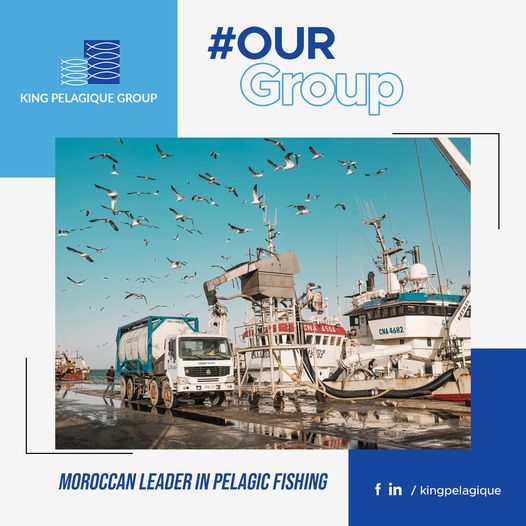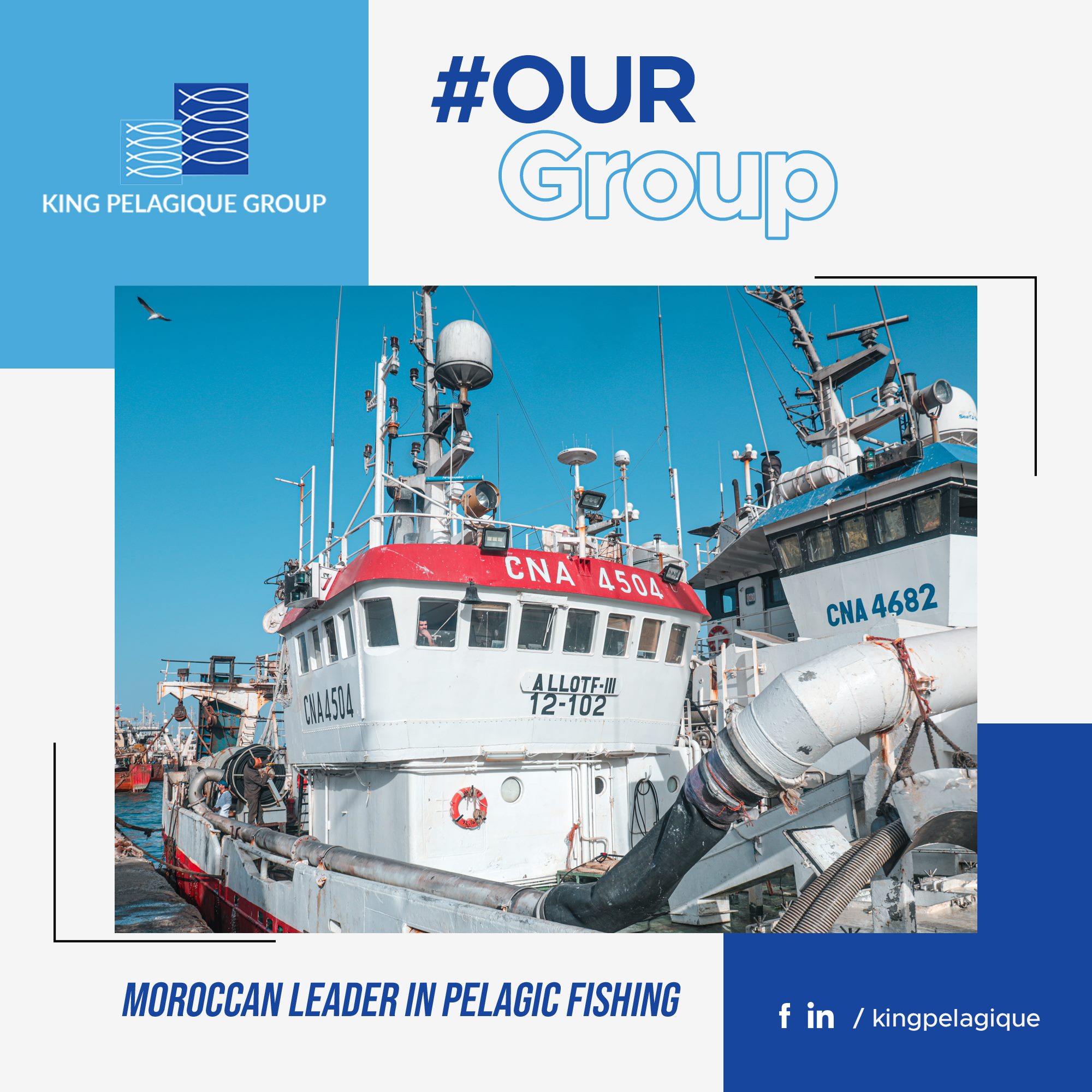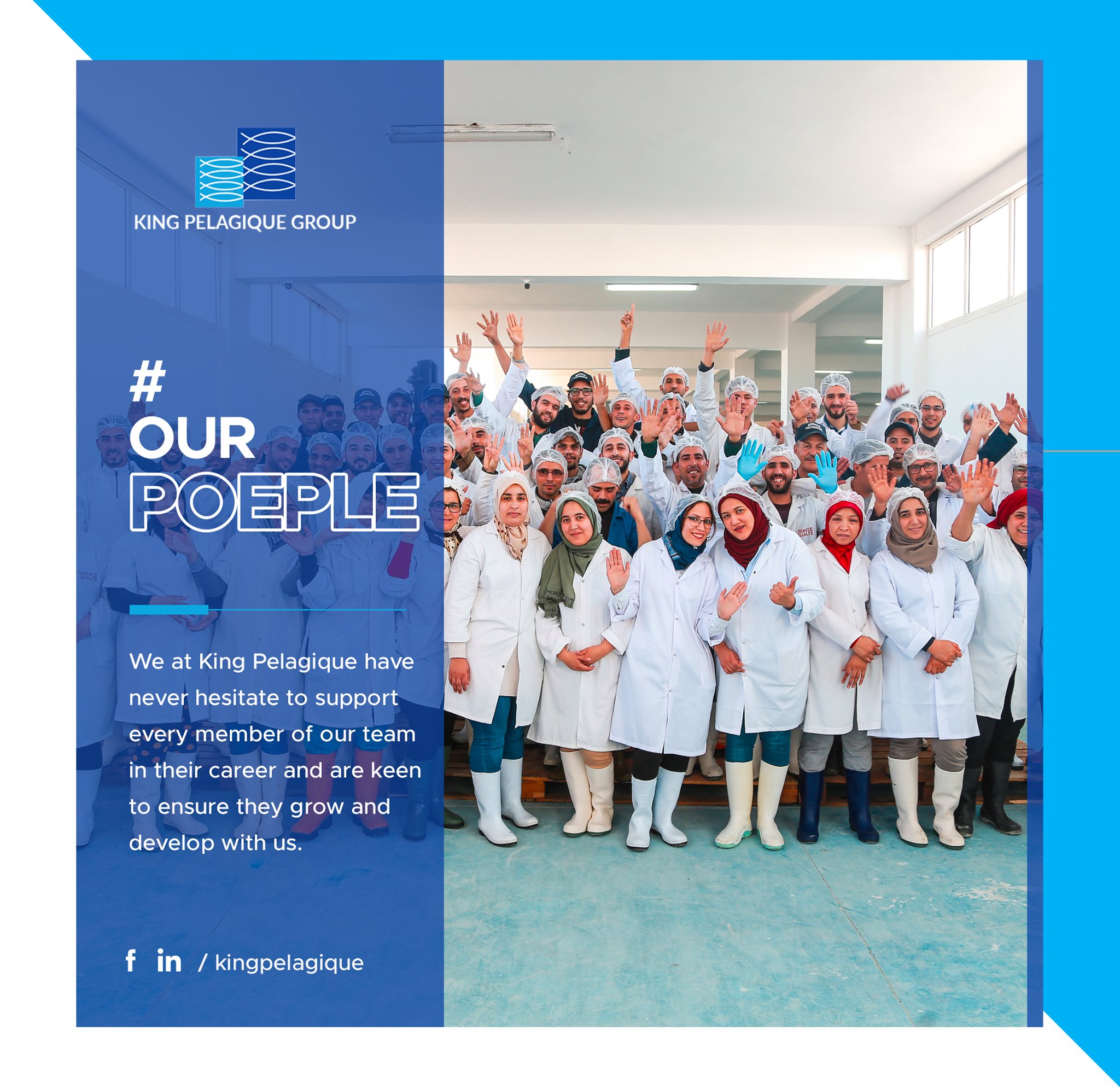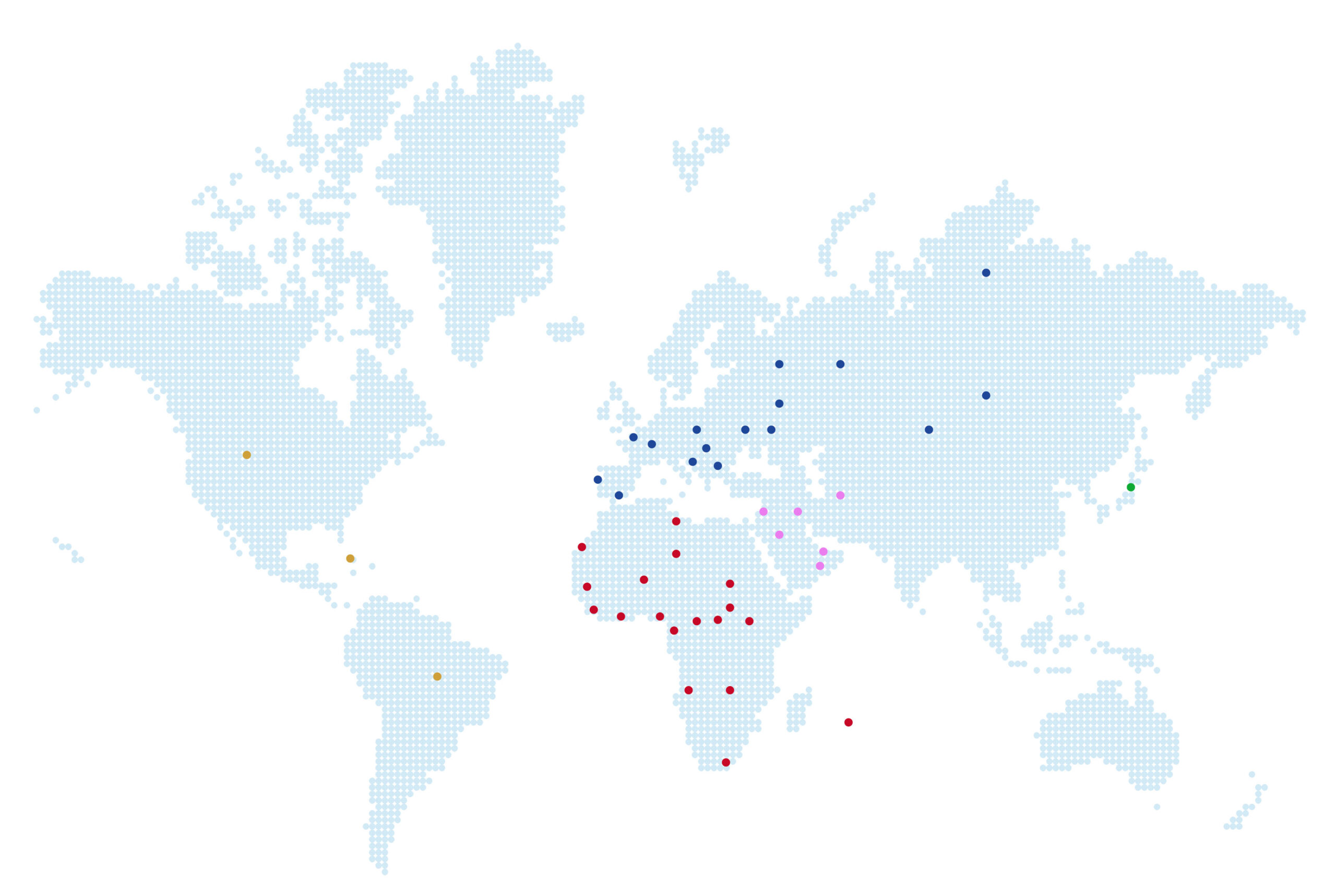 Our story to tell to young and old
Our story to tell to young and old
It is difficult for me to talk about King Pelagique without saying a word about its genesis.
Having started my career as a cephalopod ship-owner in Agadir, the octopus crisis and the drastic decrease in catches at the beginning of the 2000s, forced me to find other solutions: the octopus resources had depleted, only the sardine stock constituted an interesting resource, because it was solely exploited industrially by a fleet of Russian freezer trawlers, which transshipped their catches for export (which marginally benefited the national economy).
In order to interest the Moroccan administration in considering access to this resource by a national fleet, it was necessary to suggest the conversion of cephalopod vessels, which would certainly alleviate the pressure on the cephalopod stock (thus offering the first advantage of valorization), but above all to present the second advantage, certainly the most convincing one,landing and valorization of the catches on Moroccan land. And what at first seemed to be a simple boast turned into a real gamble.
Once the agreements in principle were obtained, the next step was to find the appropriate vessel capable of fishing a fragile resource such as sardines, but also of landing them in very good quality in order to obtain a high valuation. However, it was difficult to follow this model in other regions of the world, as few fishing areas have the same species and the same constraints, so it was necessary to innovate and adapt the conditions of the vessel to the conditions of the species. This is how the RSW (refrigerated sea water) vessels made their appearance in the Moroccan fleet.
The fishing obstacles having been removed, we had to develop the processing capacities to valorize quantities that could reach 250 tons of landings in order to avoid ending up in a process that is not very valorizing, namely flour.
This conception of a process by stages and integration of the added value has favored the birth of King Pelagique which is today the first integrated group of pelagic fishing in Morocco, starting in fishing to elaborated products through freezing, filleting, canning, surimi base, and the production of fishmeal and oil.
If the history of the group is dense and exciting, it has not been without adventures. And if we have been able to overcome a certain number of constraints, it is above all thanks to a team of women and men united by a sense of Challenge and a lot of things well done.
Thanks to this philosophy, King Pelagique has contributed to create the human capital of the city of Dakhla and to lay the foundations of its regional development.
By adopting this integration strategy, the King pelagique group and its skilled and passionate teams have been able to reach levels of valorization of the raw material which are certainly among the highest of the continent and this thanks to a triptych of values which is declined as follows:
- Preserve the common good Which is the natural resource.
- Create a maximum of qualified jobs that will be the basis of regional development
- Maximize the local added value for each kg of fish caught.
Its fleet of five RSW vessels employing 120 sailors has created more than 2,500 permanent jobs on land. This allows it to proudly announce that for each day of work created, only 80 kg of pelagic fish were caught: This represents the lowest rate of kg of fish caught per day of work created in the sector.
And consequently the highest rate of valorization of the raw material. If we consider that the added value is the main indicator of wealth creation in a country, we can better understand the importance of this segment in the regional economy.
If today, for all the teams of King Pelagique, to be part of the leaders is not a simple positioning or even an easy place… it is above all a vision accompanied by a culture of the rigorous which is declined by a commitment of quality for our partners and our customers.





